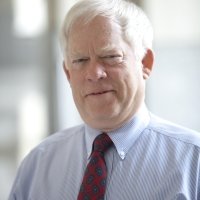Pakistan's Interminable Energy Crisis: Is There Any Way Out?
Photo: Asianet-Pakistan/Shutterstock
Pakistan is plagued by a deep energy crisis—one with troubling consequences for its fragile economy and volatile security situation. Islamabad, in fact, has described energy as a greater challenge than terrorism. Energy is also a major public concern. Recent polling finds that more than 90 percent of Pakistanis are worried about energy shortages.
This conference seeks to capitalize on the urgency of the crisis. It will focus on steps that can and should be taken in the immediate future to address both supply- and demand-side aspects of Pakistan’s energy conundrum. It will also propose actionable recommendations for Pakistani policymakers. Additionally, it will address implementation hurdles and how to overcome them.
Learn more about the participents and speakers here. This conference has been made possible through the generosity of the Fellowship Fund for Pakistan.
Speakers

Former Director, Asia Program, Woodrow Wilson Center; Former Public Policy Fellow, Woodrow Wilson Center


Former Senior U.S. Diplomat and U.S. Ambassador in both South Asia and West Africa, with publications on both regions
Hosted By

Indo-Pacific Program
The Indo-Pacific Program promotes policy debate and intellectual discussions on US interests in the Asia-Pacific as well as political, economic, security, and social issues relating to the world’s most populous and economically dynamic region. Read more


Global Risk and Resilience Program
The Global Risk and Resilience Program (GRRP) seeks to support the development of inclusive, resilient networks in local communities facing global change. By providing a platform for sharing lessons, mapping knowledge, and linking people and ideas, GRRP and its affiliated programs empower policymakers, practitioners, and community members to participate in the global dialogue on sustainability and resilience. Empowered communities are better able to develop flexible, diverse, and equitable networks of resilience that can improve their health, preserve their natural resources, and build peace between people in a changing world. Read more
